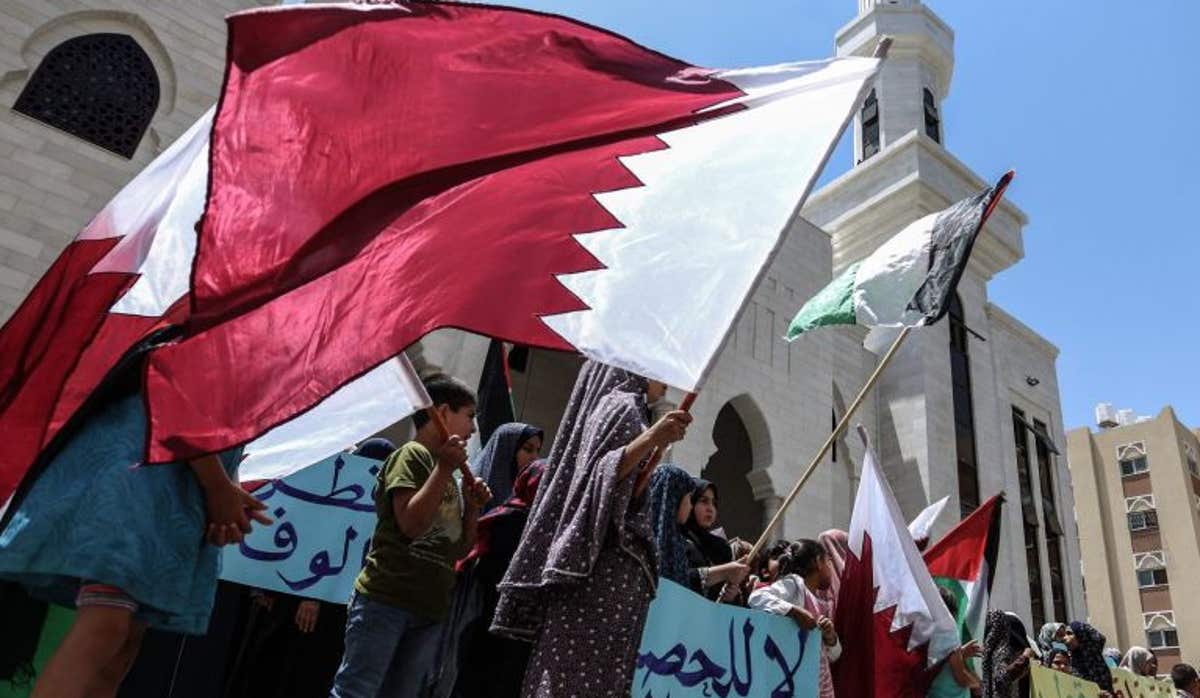Americans have long understood the need for the separation of church and state, even if the line has gotten blurred over the years. Now they need to start thinking about the line between mosque and state. In particular, they need to confront the problem of taxpayer funds being handed to Islamist organizations in the United States. (Don’t Fund Jihad)
It happens a lot.
For example, in 2021 the Biden Administration, awarded $50,000 to Helping Hand for Relief and Development (HHRD), an organization that in 2017, organized a conference in Pakistan that was cosponsored by Falah-e-Insaniat Foundation and the Milli Muslim League, the charitable and political wings of a Pakistani terrorist organization called Lashkar-e-Taiba.
Falah-e-Insaniat was designated as a terrorist organization by the U.S. State Department in 2016 and the leader of Lashkar-e-Taiba, Hafiz Saeed, had a $10 million bounty for his arrest because of his role in orchestrating the Mumbai Massacre in 2008. He now sits in a prison in Pakistan for terror financing. These are the folks HHRD hangs with overseas. Why is the organization getting taxpayer funds? (Don’t Fund Jihad)
In 2020, federal officials gave $4.2 million to the Islamic Center of Detroit to promote child nutrition, even though the center’s imam, Achmat Salie, has denounced presidential candidates as “puppets of the Zionists,” and claimed the existence of a plot to infect Muslims with COVID.
Why did a New York branch of the Muslim American Society (MAS) recently receive $210,000 for remote learning during the COVID-19 pandemic despite being part of a national organization named by federal prosecutors in 2008 as the “overt arm of the Muslim Brotherhood” in the United States? (Don’t Fund Jihad)
There’s more. Between late 2016 and the end of 2020, the U.S. government gave $175,000 to the Council on American-Islamic Relations (CAIR) and one of its local affiliates despite being blacklisted by the Obama administration’s Justice Department in 2009 because of its close relationship with the Holy Land Foundation, a major terror finance organization shut down by the government.
Similarly, between 2015 and 2019, the federal government handed more than $2 million to branches of Islamic Relief, the leading charitable arm of Muslim Brotherhood affiliates across the globe. In December 2020, the U.S. State Department condemned the charity’s “blatant and horrifying anti-Semitism and glorification of violence.” Apparently, Islamic Relief has gotten zero funds since this declaration, indicating that someone in the federal government has come to his senses.
It’s not just a domestic problem. USAID has spent millions of dollars to build madrassas and mosques in countries like Afghanistan and Indonesia, where radical Islamists play a huge role in the practice of Islam. The USAID spending on mosques flouts federal law which states that USAID funds “may not be used for the acquisition, construction, or rehabilitation of structures to the extent that those structures are used for inherently religious activities.” (Don’t Fund Jihad)
And it’s not just a federal problem. In 2018, New York City awarded a total of $250,000 to 14 Muslim groups. The recipients included two affiliates of the Muslim Brotherhood — CAIR and the Muslim American Society (MAS). Another recipient was the Islamic Circle of North America (ICNA) which is affiliated with Jamaat e-Islami (JI), an Islamist organization in Pakistan responsible for mass killings during the Bangladeshi war of independence in 1971.
Officials at all levels of government have justified giving public funds to religious institutions by following a Supreme Court dictum that says the money must be given in pursuit of secular purposes, is not used to promote the faith of the institution in question and does not hinder the practice of anyone else’s faith. (Don’t Fund Jihad)
The problem is that receiving public funds is a source of credibility that radicals can use to mainstream or downplay their extremist beliefs which in some instances, call for depriving others of their rights.
It’s one thing for public institutions to accommodate the religious activities of individual citizens with amenities such as prayer rooms in airports, but it’s another thing altogether to put money in the coffers of extremist religious and political institutions. All too often, that’s what’s happening in the United States. (Don’t Fund Jihad)
If you don’t want to fund Islamist extremism, be very careful about which institutions receive public money









